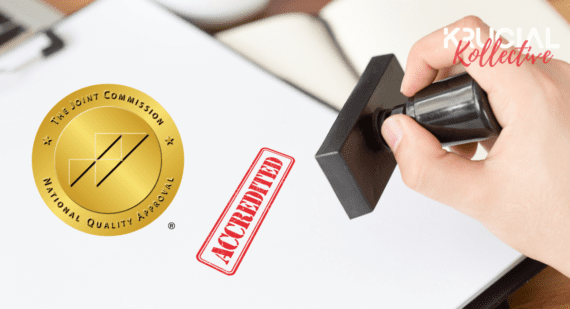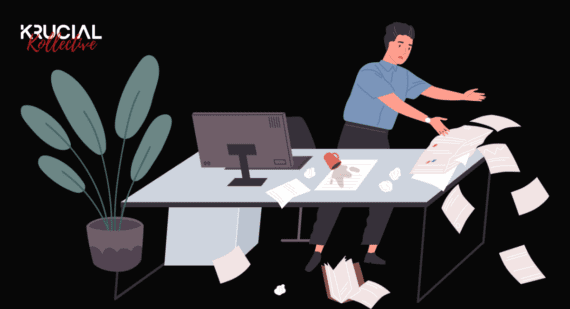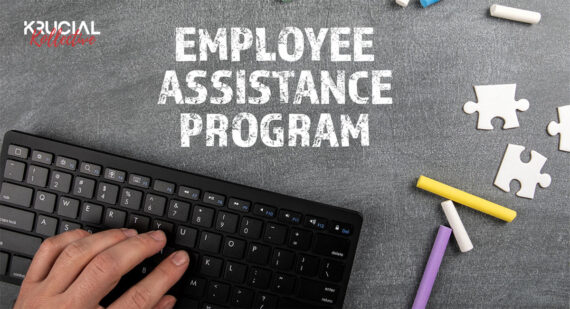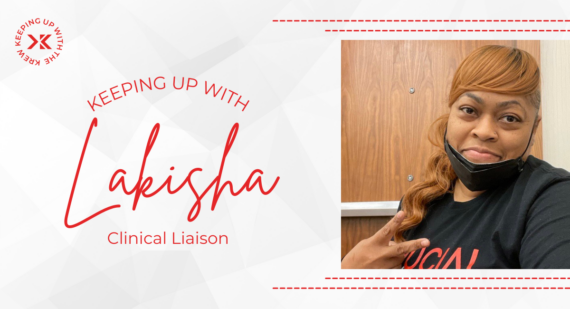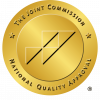
Mental Health Resources: Combatting Stress Brought on by the Pandemic
By: Courtney Holmes
The strain and stress this pandemic has put on healthcare workers are indescribable. COVID-19 created challenges healthcare workers have never faced before while simultaneously overwhelming hospitals with patients who needed isolation at a speed many were not ready for. According to a poll done by the Washington Post in April 2021, six in 10 healthcare workers say the stress from the pandemic has harmed their mental health. If you are feeling like your mental health has been affected over the past two years, then you are not alone.
“Healthcare is, at its core, about improving the odds of life in its struggle against death. Of extending that game which we will all lose, each one of us unto eternity, extending it another year, month or second,” said Keith Olbermann, author , and commentator, during a special broadcast on MSNBC.
Dealing with death has always been part of being a healthcare worker. All healthcare workers train on how to handle the post-modem process, but COVID-19 has redefined the death process. Healthcare workers have not only had to navigate the challenges that came with the pandemic, but the amount of death seen in such a short time span has greatly affected those who have been in the medical field for years and especially those who recently joined the field.
Tik-Tok healthcare influencer, Johnathan Dodson RN*, described the impact of COVID-19: ”When you work in the ICU [Intensive Care Unit], you see people die, it’s part of the job, you are never going to get around it. But pre-pandemic, what you see is for every 100 patients, you see about five to six people die, so what you see is an overwhelming number of people live, and you feel like you are doing something good, and now that has flipped. What the pandemic did is cause an inverse relationship between death and survivability.”
As this pandemic has continued, images of patients in distress, dreams of perpetual alarms, goodbyes through an iPad , and repeated trauma have come home to many in the healthcare community.
While the pandemic is not over, we wanted to build a list of resources to help with the stress many are facing and remind everyone that you are not alone.
If you need to talk to someone immediately:
- Call 1-800-273-TALK (1-800-273-8255)
- Available 24/7
- Online Lifeline Crisis Chat
- Chat 24/7
If you are struggling with Seasonal Affective Depression:
The Cleveland Clinic, known for its world-renowned research, has resources for working through the winter months: “Seasonal affective disorder (SAD) is depression that gets triggered by a change in seasons, usually when fall starts. This seasonal depression gets worse in the winter before ending in the spring.
Some people may get a mild version of SAD known as the ‘winter blues.’ It’s normal to feel a little down during colder months. You may be stuck inside, and it gets dark early.”
An organization called Better Help also offers counseling at a low cost, no matter your location. It was started in 2013 to offer counseling over the phone anywhere at any time in any part of the country. According to Better Help, it has more than 24,000 licensed therapists with over 20,000 reviews. We recommend checking them out, no matter what type of mental health issue you are facing.
If you are struggling with depression/burnout:
The American Medical Association offers many resources to help healthcare workers, specifically with burnout and recovery from injuries while practicing medicine, both physical and psychological. AMA is directed towards healthcare professionals and examples they may experience working on the floor with patients.
The American Psychiatry Association also breaks down how to handle stress and anxiety. They have produced information on how to combat depression on a day-to-day basis. Additionally, there is a page with commonly asked questions about depression if you are unsure where to begin your healing journey.
If you are struggling with PTSD:
The National Institute of Mental Health (NIMH) has excellent resources for working through PTSD.
According to the NIMH, “Post-traumatic stress disorder (PTSD) is a disorder that develops in some people who have experienced a shocking, scary or dangerous event. It is natural to feel afraid during and after a traumatic situation. Fear triggers many split-second changes in the body to help defend against danger or to avoid it. This fight-or-flight response is a typical reaction meant to protect a person from harm. Nearly everyone will experience a range of reactions after trauma, yet most people recover from initial symptoms naturally. Those who continue to experience problems may be diagnosed with PTSD. People who have PTSD may feel stressed or frightened, even when they are not in danger.”
Additionally, Healthline has fantastic resources for working through PTSD, including resources such as Eye Movement Desensitization and Reprocessing (EMDR) therapy. EMDR is an interactive psychotherapy technique used to relieve psychological stress.
There is not just one way to begin processing the effects of this pandemic. It is recommended to find what works for you and your situation. We, at Krucial, feel it is essential to encourage everyone who has worked tirelessly in this pandemic to take a moment to evaluate their mental health and reach out if needed.
We recognize all the sacrifices that everyone in healthcare has made to help patients during this pandemic. It has taken an unimaginable toll on mental health for many healthcare workers. People left their families and lives to serve others and came home with battle scars. Your pain is noticed, your heroism is honored, and we encourage you to reach out for support.
Interested in contributing to the Krucial Kollective? Send us an e-mail at marketing@krucialrr.org and let us know what you would like to write!
*Krucial Rapid Response is in no way associated with Tik-Tok healthcare influencer, Johnathan Dodson.
“Healthcare is, at its core, about improving the odds of life in its struggle against death. Of extending that game which we will all lose, each one of us unto eternity, extending it another year, month or second.”
Keith Olbermann, MSNBC
